- Academics Home
- Directories

Quick Links
- Directories Home
- Colleges, Schools, and Departments
- Administrative Units
- Research Centers and Institutes
- Resources and Services
- Employee Directory
- Contact UNLV
- Social Media Directory
- UNLV Mobile Apps
Doctor of Philosophy in Water Resources
Jump to section:, learning outcomes, career possibilities, requirements.
- Documents and Downloads
The Water Resources Ph.D. program is built on an integrative curriculum and an interdisciplinary approach. It focuses on solving water-related challenges that transcend traditional academic boundaries. It is a technically and scientifically based program that blends the physical, chemical, and biological aspects of water resources with public health, policy, and management. The program is designed to provide students from a wide-range of educational backgrounds an opportunity to develop into water resource professionals. Program graduates are expected to become part of a much-needed diverse, highly educated, and well-trained interdisciplinary workforce that supports water-related entities in Nevada and beyond.
Available Options
Post-bachelor's, post-master's, accreditation.
For information regarding accreditation at UNLV, please head over to Academic Program Accreditations .
- Develop, evaluate, and assess new techniques, skills, and tools to solve water resources related problems in an interdisciplinary manner.
- Acquire extensive water resources related knowledge in their area of interest (Water Technology, Water Science and Health, and Social Science and Public Policy) and a demonstration of mastery of knowledge in that area" to "Demonstrate mastery of knowledge in the chosen sub-plan concentration (Water Technology, Water Science and Health, and Social Science and Public Policy).
- Critically read and analyze literature, develop research hypothesis, and create methodology to solve research problems related to water resources.
- Collect and analyze research data interpret and synthesize the findings through peer reviewed conference proceedings and journal papers.
- Effectively communicate technical and research information.
Professional opportunities for graduates of the program are diverse, including but not limited to scientific and engineering consulting firms, private industries that deal with water, academic and research institutions, government sectors (e.g., United States Environmental Protection Agency, United States Agency for International Development, United States Department of Energy, United States Department of Defense, United States Geological Survey, state departments of health/environment, and cities and municipalities), non-governmental organizations (e.g., Greenpeace, Sierra Club, Kenny Guinn Center for Policy Priorities), and international organizations (e.g., World Bank, World Health Organization, United Nations Environment Program).
Documents/Downloads
Plans of study.
- CEE 704 184.92 KB
- CEE 755 210.47 KB
Degree Worksheets
Graduate handbooks.
- Graduate Handbook 271.94 KB
Additional Downloads
Related links.
- 2024-25 24.38 KB
- 2023-24 23.36 KB
- 2024-25 23.47 KB
- 2023-24 23.41 KB
Graduate Coordinator
Eakalak khan, ph.d., p.e., college of liberal arts.
The College of Liberal Arts offers students a well-rounded education in the humanities and social sciences. Students develop strong analytical and communication skills for a lifetime of learning and discovery that can be applied to a wide variety of careers.
College of Sciences
The School of Life Sciences offers programs that meet the needs of students intending to enter the workforce or pursue advanced training in the sciences, medicine, and other professional and technical fields. We provide a well-rounded foundation in natural, physical, and mathematical sciences that can set students up for successful careers and professional programs.
Graduate College
The Graduate College supports a wide range of graduate certificate, master's, specialist, and doctoral degrees offered through the university's many academic units. Students are provided with a quality academic experience in their coursework, research/creative activity, and professional development opportunities.
Greenspun College of Urban Affairs
The Greenspun College of Urban Affairs is committed to creating contemporary solutions for resilient communities. Our academic programs focus on making effective public policy, creating support structures to meet behavioral and mental health challenges, ensuring cities are safe and prepared to meet emergency situations, effective and ethical journalism, and interpersonal and public communication strategies.
Howard R. Hughes College of Engineering
The College of Engineering provides students a well-rounded foundation in several engineering disciplines for a successful career in engineering and computer science. Through the hands-on, experiential education experience we offer, students are enabled to achieve excellence in their respective fields.
School of Public Health
The School of Public Health is dedicated to improving the health and well-being of people worldwide. Our departments, programs, and research units work to provide a diverse education, practical training experience, and numerous community involvement opportunities to prepare students to become leaders and professionals in the field of public health.

Doctor of Philosophy in Hydrology and Water Resources
Description.
(Effective Fall 2019) TIMEFRAME: The program is designed for students interested in the physical, chemical, and biological aspects of the hydrologic cycle, as well as water resources systems, environmental studies, or water policy and the social sciences related to water resources. Students may concentrate in one or a combination of these areas but are expected to acquire fundamental proficiency in all aspects of hydrology and water resources. Research-based study programs are individually planned to meet the student's special interests and professional objectives. Time-to-completion for the Doctor of Philosophy degree in Hydrology is approximately 3.5-5 years (coursework, research, writing the dissertation, all exams) for well-prepared students. All candidates must submit a dissertation or dissertation publication manuscript which has been judged by the student's committee to be eligible for publication in appropriate scientific journals and present the results at two regional, national, or international scientific meetings.
STUDY TOPICS: Active research areas include hydrogeology, hydrogeochemistry, hydrometeorology, hydroclimatology, environmental hydrology, ground-water hydrology, surface water hydrology, vadose zone hydrology, mathematical and statistical methods in hydrology (including stochastic and numerical modeling), water resources sytems, and water resources policy.
PREPARATION: Doctoral applicants should have completed a Master of Science degree with a major in hydrology, water resources, environmental sciences, environmental engineering, or a related field. (Holders of a Bachelor's degree cannot enter the program directly.) Students who have completed all of the required undergraduate mathematics and science prerequisites may have a decreased time to completion. NOTE: Students must have completed at least 2 semesters of calculus and have no more than 4 outstanding course deficiencies at the time of matriculation. All students are expected to acquire basic computer programming/coding skills (e.g. Python, MATLAB, Fortran, C++) and complete a field methods/laboratory-field synthesis course sequence. To satisfy the professional development requirement, students are required to attend weekly seminars and colloquia at the beginning of academic residency, officially enroll in the HWRS colloquium (595A) for at least one semester at some time during residency, and make two formal seminar presentations of their dissertation research (at least one oral presentation) at approved regional, national, or international conferences near the end of their academic residency.
FORMAL EXAMINATIONS: Where gaps exist in background knowledge of basic hydrology and water resources (primary areas of surface water hydrology, subsurface hydrology, water quality-chemistry, water resources systems), first-year doctoral students may be required to complete fundamental core courses in preparation for the Doctoral Qualifying Examination. This exam must be passed by the end of the second semester in residence. After all course work for the Major and Minor has been completed (typically by the end of 2 1/2 to 3 years in residence), the Comprehensive Examination process -- which will include multiple Written exams and one Oral exam -- is initiated. When the Comprehensive Exams have been passed, the student becomes an official doctoral degree candidate. A Final Doctoral Oral Examination, or Dissertation Defense, is required in the final semester. See the PHD HWRS Program Guide for full details.
Apply at the Graduate College website : Click on the Apply Now button for the Program of Study "Hydrology (PHD)." You will be required to upload a variety of documents, including:
- All Applicants:
- Scanned copies of original transcripts (do not send original transcripts with official seal and signature until after you are accepted into the program)
- Names/contact information for three (3) letters of recommendation (referees will submit letters to us online)
- Resume or curriculum vitae
- Statement of research interests
- International Applicants Only: English Proficiency scores also required (details below)
English Proficiency Guidelines: Non-native speakers of English should consult the Graduate College website for information about documenting their proficiency in English . Currently, these minimum scores satisfy the English Proficiency requirement:
- TOEFL (Test of English as a Foreign Language): Minimum score 79 (or 60 on the revised PBT, with no section score lower than 15). Individual MyBest scores must also be dated within 2 years of the enrollment term to be considered valid.
- IELTS (International English Language Testing System): Minimum composite score of 7, with no subject area below a 6
- Pearson PTE Academic : Minimum score of 60
- Graduate English Language Endorsement from the University of Arizona's Center for English as a Second Language (CESL)
- CEPT Full Academic Test at the University of Arizona's Center for English as a Second Language (CESL), minimum total score of 110
- Exemptions by Country from submitting English proficiency scores may be found at the Graduate College website, Requirements by Country
Admission deadlines:
- Domestic Applicants: January 15 for Fall Semester. October 1 for Spring Semester.
- International Applicants: January 15 for Fall Semester. August 1 for Spring Semester.
Students may be eligible for support through Graduate Assistantships in research and teaching, fee waivers (scholarships), and fellowships. Other funding opportunities are provided by the Graduate College at their Financial Resources website .
Degree Program Reqs
(Effective Fall 2019) The degree requires a minimum of 54 semester units in the Major field of study (HWRS) which includes 36 course units and 18 dissertation units. A complementary Minor field of study (number of units varies) is also required (see Doctoral Minor below). All undergraduate prerequisite courses in math and science should be completed by the end of the first year in residence. See the PHD HWRS Program Guide for full details.
UNDERGRADUATE COURSE PREREQUISITES*
- Physical geology: 1 semester
- College chemistry: 2-semester sequence in inorganic/analytical chemistry
- College physics: 2-semester sequence, one course in mechanics and one course in electricity/magnetism or optics/thermodynamics
- Fluid mechanics: 1 semester
- Mathematics: Calculus 1, calculus 2, vector calculus, and introductory differential equations
- Statistics: 1 semester in statistics or probability theory for the physical sciences or engineering
- *You must have received a grade of C or higher to satisfy these course prerequisite requirements. Grades below C are not recognized the UA Graduate College.
- *Please note that we cannot accept students with more than four undergraduate course deficiencies, and you must have completed at least two semesters of calculus. If you have a course in progress or course/courses to be completed prior to beginning our program, you may note this on the graduate application.
CORE COURSES
No specific core courses are required for doctoral students, although inclusion of one or more in the plan of study may help students prepare for the Doctoral Oral Qualifying Examination (end of second semester/Year 1). Consult with the Director of Graduate Studies-Hydrology for advice.
- HWRS 517A Fundamentals of Water Quality (3 units) Fall
- HWRS 518 Fundamentals in Subsurface Hydrology (3 units) Fall
- HWRS 519 Fundamentals in Surface Hydrology (3 units) Spring
- HWRS 528 Fundamentals: Systems Approach to Hydrologic Modeling (3 units) Fall
HWRS PRIMARY FACULTY ADVANCED ELECTIVES
Advanced elective course work must be approved by the Director of Graduate Studies-Hydrology. The Doctoral Plan of Study must include a minimum of 21 semester units in this category (includes core courses and HWRS Primary Faculty advanced elective courses). (Independent study, professional development enrollment, and field methods are not included in this category.) Refer fo the PHD HWRS Program Guide for a list of approved HWRS Primary Faculty courses .
OTHER ELECTIVES & TRANSFER COURSE WORK
The plan of study should also include 12 additional units from: 1) the HWRS Primary Faculty course list, 2) approved transfer course work, and/or 3) approved graduate-level courses from other UA departments. Refer fo the PHD HWRS Program Guide for a list of pre-approved courses outside the department. Consult with the Director of Graduate Studies-Hydrology regarding potential transfer course work.
FIELD METHODS
- HWRS 513A Field Methods (2 units) Spring
- HWRS 513B Field Synthesis (1 unit) Summer Presession (completed by end of May)
DISSERTATION
- HWRS 920 Dissertation (18 units total) -- delete any excess units from Doctoral Plan of Study prior to submission
PROFESSIONAL DEVELOPMENT
- Enrollment in HWRS 595A Weekly Colloquium, Current Topics in Hydrology and Atmospheric Sciences, for at least one semester is required. These units are not included in the Doctoral Plan of Study.
- Two oral or poster presentations (minimum one oral) of the doctoral dissertation research at approved regional, national, or international conferences is required. No academic credit is awarded for oral or poster presentations.
- Submit an email memo with details to the Director of Graduate Studies-Hydrology (see Program Guide for instructions)
DOCTORAL MINOR
- A doctoral minor area of study (outside the department) that complements and supports the dissertation research is required. The minimum semester units required vary by department, ranging from 9-15 semester units (the average is 12 units).
- Common Minors and their course prefixes include Applied Mathematics (APPL), Arid Lands Resource Science (ARL), Atmospheric Sciences (ATMO), Chemical Engineering (CHEE), Civil Engineering (CE), Computer Science (CS), Geography and Development (GEOG), Geological Engineering (GEN), Geosciences (GEOS), Global Change (GC), Mining Engineering (MNE), Remote Sensing and Spatial Analysis (REM), Renewable Natural Resource Studies (RNR), Soil-Water-Environmental Sciences (ENVS/SWES), and Systems Engineering (SIE). Other Minor areas of study may also be possible.
EXAMINATIONS
- End Year 1/Second Semester: Doctoral Qualifying Examination in the Major -- Contact the HAS Program Coordinator for details
- End Year 1 Doctoral Qualifying Examination for the Minor -- May be optional, so consult Minor Department
- End Year 3 Doctoral Written and Oral Comprehensive Examinations in the Major and Minor -- Initiate after all course work completed
- Year 4-5 Doctoral Final Oral Examination -- Dissertation Defense
DISSERTATION ARCHIVAL
Electronic submission of the doctoral dissertation to the Graduate College and archival with ProQuest UMI is required. The department does not require a copy, although members of the student's faculty committee may request a copy of the manuscript.
Be aware of the Graduate College's Steps to Your Degree requirements timeline when planning your examinations (Comprehensive Process and Final Oral/Defense). Allow yourself enough time to make any required revisions of the doctoral dissertation before submission to the Graduate College. The Graduate College's electronic degree audit system includes the following GradPath forms which are required for all Doctor of Philosophy degree candidates. You can complete these forms by logging on to the university's Student UAccess system. You can also refer to the department's PHD HWRS Program Guide and the Dissertation Manuscript Options for instructions and guidance:
- Responsible Conduct of Research Form
- Only if using external transfer courses
- Doctoral Plan of Study
- Comprehensive Exam Committee Appointment Form
- Announcement of Doctoral Comprehensive Examination
- Submitted by Committee Chair
- Candidacy Fees charged to student bursar's account upon advancement to doctoral candidacy
- Verification of Prospectus/Proposal Approval
- Doctoral Dissertation Committee Form
- Must be submitted and approved at least one week before the date of final examination/defense
- Submission of Final Dissertation Manuscript for Archiving
- Exit Survey
Learning Outcomes
Refer to the Assessment section for learning outcomes and measures.
General Inquiry:
Admissions Contact:

Lupe Romero
Director of Graduate Studies:

Martha P.L. Whitaker

International Institute of Water
PhD Programs
IIW provides the opportunity for doctoral students from all over the world to deepen their knowledge and equip them to be leaders in the development of transformative solutions for one of humanity’s most critical challenges, ensuring a sustainable and abundant water supply for generations to come. Our PhD programs boast modern faculty and research facilities, ensuring that students receive top-tier education and hands-on experience in this critical area of study.
PhD in Water Science and Management PhD in Water Science and Management represents an advanced and multidisciplinary approach to understanding, conserving, and managing one of our planet’s most precious resources: water. This specialised doctoral program goes beyond traditional water-related disciplines and encompasses a wide spectrum of subjects, including hydrology, environmental science, policy development, and sustainable resource management. By combining scientific knowledge with practical management skills, graduates of this program are uniquely positioned to address complex water-related challenges at local, regional, and global levels.
Apply for a PhD position ➡️
We have 58 water management PhD Projects, Programmes & Scholarships
All disciplines
All locations
Institution
All Institutions
All PhD Types
All Funding
water management PhD Projects, Programmes & Scholarships
Water management-desalination and wastewater treatment, phd research project.
PhD Research Projects are advertised opportunities to examine a pre-defined topic or answer a stated research question. Some projects may also provide scope for you to propose your own ideas and approaches.
Self-Funded PhD Students Only
This project does not have funding attached. You will need to have your own means of paying fees and living costs and / or seek separate funding from student finance, charities or trusts.
Optimizing water management in agroecosystems using advanced in-situ measurements (e.g. Cosmic Ray Neutron Sensors, TDRs, plant-based sensors), integrated with GIS and remote sensing techniques (e.g. satellite imagery and drone-based hyperspectral sensors)
Funded phd project (uk students only).
This research project has funding attached. It is only available to UK citizens or those who have been resident in the UK for a period of 3 years or more. Some projects, which are funded by charities or by the universities themselves may have more stringent restrictions.
Illegal water use: assessing the extent, drivers, and solutions in irrigated agriculture
Epsrc centre for doctoral training in water infrastructure and resilience (wire), funded phd programme (students worldwide).
Some or all of the PhD opportunities in this programme have funding attached. Applications for this programme are welcome from suitably qualified candidates worldwide. Funding may only be available to a limited set of nationalities and you should read the full programme details for further information.
EPSRC Centre for Doctoral Training
EPSRC Centres for Doctoral Training conduct research and training in priority areas funded by the UK Engineering and Physical Sciences Research Council. Potential PhD topics are usually defined in advance. Students may receive additional training and development opportunities as part of their programme.
Advancing Membrane Aerated Biofilm Reactor (MABR) Technology for Produced Water Treatment in Qatar
Funded phd project (students worldwide).
This project has funding attached, subject to eligibility criteria. Applications for the project are welcome from all suitably qualified candidates, but its funding may be restricted to a limited set of nationalities. You should check the project and department details for more information.
EPSRC PhD Studentship in: Big Data, Network Complexity and Machine Learning to Deliver Targeted Pro-active DWDS Maintenance
Advanced techniques for wastewater treatment and resource recovery, domestic phd scholarship – social science and on-ground implementation of natural flood management, international phd scholarship – geomorphology and hydrology of natural flood management, engineered nanomaterials for safe sustainable water purification, domestic phd scholarship – geomorphology of floodplains and wetlands for natural flood management, international phd scholarship – hydrological modelling and simulation for natural flood management, novel superprotonic materials for hydrogen technologies.
FindAPhD. Copyright 2005-2024 All rights reserved.
Unknown ( change )
Have you got time to answer some quick questions about PhD study?
Select your nearest city
You haven’t completed your profile yet. To get the most out of FindAPhD, finish your profile and receive these benefits:
- Monthly chance to win one of ten £10 Amazon vouchers ; winners will be notified every month.*
- The latest PhD projects delivered straight to your inbox
- Access to our £6,000 scholarship competition
- Weekly newsletter with funding opportunities, research proposal tips and much more
- Early access to our physical and virtual postgraduate study fairs
Or begin browsing FindAPhD.com
or begin browsing FindAPhD.com
*Offer only available for the duration of your active subscription, and subject to change. You MUST claim your prize within 72 hours, if not we will redraw.

Do you want hassle-free information and advice?
Create your FindAPhD account and sign up to our newsletter:
- Find out about funding opportunities and application tips
- Receive weekly advice, student stories and the latest PhD news
- Hear about our upcoming study fairs
- Save your favourite projects, track enquiries and get personalised subject updates

Create your account
Looking to list your PhD opportunities? Log in here .
Filtering Results
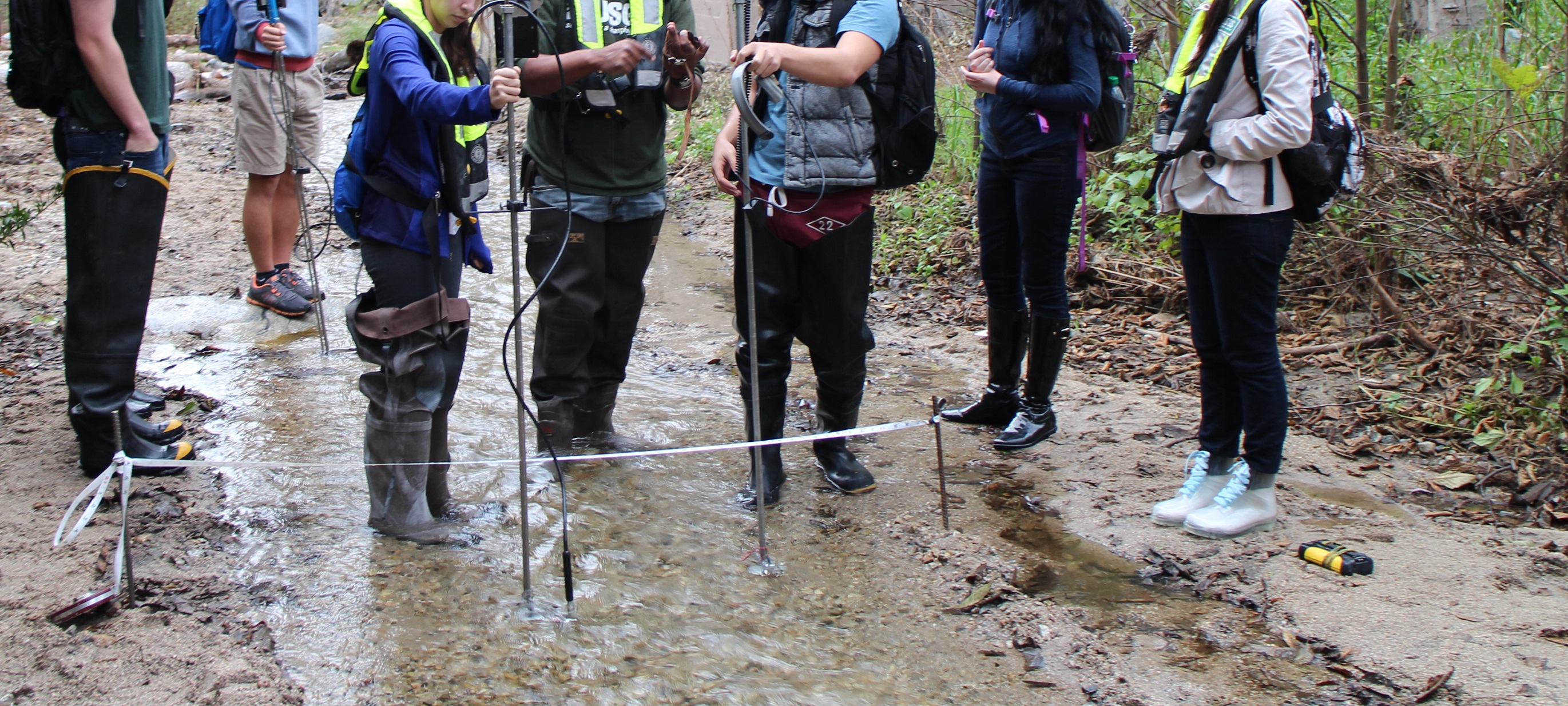
Water Resources, Ph.D.
Dive into the world’s water issues..
Managing today's water resources is a job that demands specially trained scientists and professionals who can work together across many different fields — including water science, social science, policy, law and engineering — to address emerging and monumentally complex water issues.
In this unique program, you will learn to collaborate effectively with peers in other fields and with key stakeholders and professionals to define, research and achieve creative and sustainable solutions to contemporary water problems. You will explore all aspects of water basin issues while building knowledge in one of the following areas of emphasis: engineering and science; science and management; or law, management and policy.
This program could be a good fit if you:
- Are interested in natural resources
- Are passionate about water issues
- Are you passionate about helping the environment
- Are interested in ecology, water policy and law, and engineering
- Have strong research and analytical thinking skills
- Can communicate and work well with others
Career Outcomes
With this degree, you can become a/an:
- Hydrologist
- Land-use planner
- Research Scientist
- Policymaker
- Manager of a non-profit conservation program or governmental agency
- Lawyer dealing with water rights and adjudication, irrigation disputes, water quality or endangered species acts (with JD degree)
- Professor/Educator
Moscow Boise
Available On-Campus
You may also be interested in:

Applied Economics, M.S.
Apply advanced statistical and mathematical analysis to solve complex issues involving agriculture, communities, natural resources and other applied topics.

Entomology, M.S.
Develop the skills to solve complex pest-control problems, tackle pressing pollination issues, and battle insect-borne diseases.
More degrees below. Enjoy!
Family and consumer sciences.
Learn scientific research methods to understand and solve problems of human development, family relations, personal and family finance, nutrition and community.
Soil & Land Resources
Develop valuable expertise in the sustainable use and management of soils.
Animal Physiology
Lead original research in areas such as animal growth, nutrition or reproduction.
Child Development
Gain advanced knowledge and skills to make a lasting impact in the lives of children and families.
Plant Pathology
Explore interactions between plants and microbes. Learn to develop innovative solutions that keep plants safe from diseases.
Food Science
Learn to research and develop new food products, improve the safety and quality of food products, and design safer and more efficient food processes.
Turn your passion for health and wellness into a career as a registered dietitian nutritionist.
Plant Science
Develop advanced knowledge and research experiences in the production, protection, breeding and genetics of plants.
Agricultural Education
Master the skills and techniques of teaching youth and adults about agriculture, leadership and life.
Nutritional Sciences
Explore cutting-edge nutrition research to help improve human health.
Applied Economics
- Graduate Programs
- Undergraduate Programs
- CEE Graduation Ceremony
- Civil Infrastructure
- Environmental Engineering
- Engineering Systems and Management
- CEE Sponsored Awards
- Executive Leadership
- Staff Directory
- Advisory Council
- Grad Students
- Graduate Field Faculty
- NAE Members
- Job Openings
- Bovay Laboratory Complex
- Class of 1949 Electronic Classroom
- DeFrees Hydraulics Lab
- Environmental Teaching Lab
- Environmental Fluid Mechanics Teaching Laboratory
- Environmental Processes Laboratories
- CEE Update Newsletter
- Giving Opportunities
- Recruit Students
- Class Photos
- Alumni Spotlights
- CEE Reunion 2024
- Academic Support
- Diversity & Inclusion
- Mental Health Resources
- Experience and Employment
- Grad Services and Activities
- Undergrad Services and Activities
- Student Organizations
Environmental and Water Resource Engineering M.S. & Ph.D.
Research and courses within the Environmental and Water Resources Systems (EWRS) group are concerned with the development and application of quantitative methods for the evaluation, planning and operation of water resource and environmental systems. Efforts address the integration and analysis of engineering and economic-policy issues posed by the need to manage water, land, air and human resources, as well as environmental remediation efforts. The fundamental sciences upon which such analyses are based include hydrology, hydraulics, environmental sciences, biology, and environmental engineering. For this reason, individuals in this area frequently interact with the other environmentally-orientated groups within CEE, as well as with other departments in the College of Agriculture and Life Sciences.
The systems sciences, including operations research, computer science, statistics and risk analysis, economics, and planning provide the integrating analytical methodologies that are used to evaluate environmental issues. By examining engineering, socio-economics, ecology and public policy issues using analytic model-oriented frameworks, we strive to communicate estimates of the impact and risks of alternative decisions to the many possible stakeholders associated with environmental management decisions. Student projects have addressed regional water resources management issues in California, New York State, New Jersey, Mexico, North Africa, Europe, and parts of Asia. Specialized software packages for water resources system simulation, support of negotiations, stochastic streamflow generation and flood frequency analysis have been used around the world. In a time of quantum leaps in computing technology, when local and national governments face tight budgets, and when society as a whole has a desire for economic efficiency and sustainability, an interest in the intelligent use of environmental resources, and a concern for risks to human health, we believe environmental systems engineering is an important and promising area for research and study. To that end we strive to advance the quality and capability of analytical methodologies for environmental management, and to facilitate the application of such techniques to the solution of real problems.
We believe that in collaboration with faculty from a number of fields across the Cornell campus, our research and our course offerings represent one of the strongest environmental systems programs in the country.
Learn more by viewing the M.S./Ph.D. in EWRS brochure (pdf). Additional information can be found in this document: EWRS pamphlet (pdf).
If you need an accessible copy of these documents contact [email protected]
Faculty in the EWRS area include:
Patrick Reed
DEEP UNCERTAINTY Decision Analysis: An Interactive Exercise
Best Universities for Hydrology and Water resources management in the World
Updated: February 29, 2024
- Art & Design
- Computer Science
- Engineering
- Environmental Science
- Liberal Arts & Social Sciences
- Mathematics
Below is a list of best universities in the World ranked based on their research performance in Hydrology and Water resources management. A graph of 2.22M citations received by 149K academic papers made by 1,020 universities in the World was used to calculate publications' ratings, which then were adjusted for release dates and added to final scores.
We don't distinguish between undergraduate and graduate programs nor do we adjust for current majors offered. You can find information about granted degrees on a university page but always double-check with the university website.
1. Beijing Normal University
For Hydrology and Water resources management

2. Hohai University
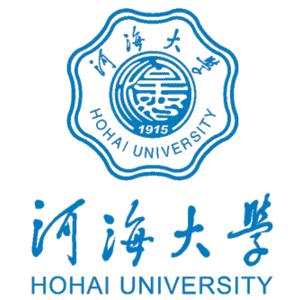
3. Wageningen University

4. University of California - Davis
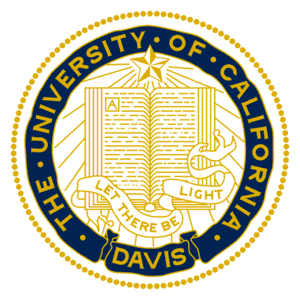
5. University of Illinois at Urbana - Champaign

6. Tsinghua University

7. University of Tokyo

8. Wuhan University

9. University of Tehran
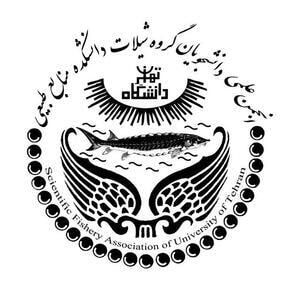
10. Utrecht University

11. Texas A&M University - College Station

12. University of Arizona
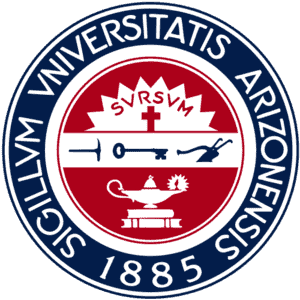
13. Delft University of Technology

14. Nicolaus Copernicus University

15. Chang'an University

16. Colorado State University - Fort Collins
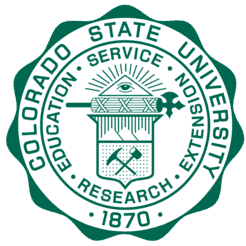
17. University of Melbourne

18. University of California - Berkeley

19. China Agricultural University
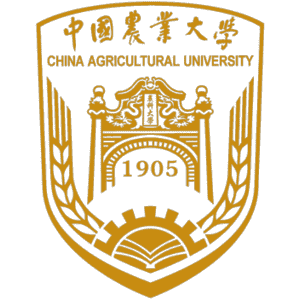
20. University of Twente

21. University of Florida
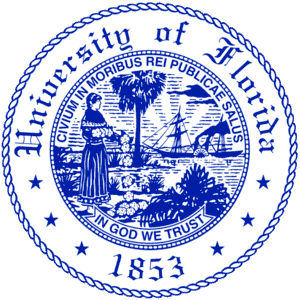
22. Indian Institute of Technology Kharagpur
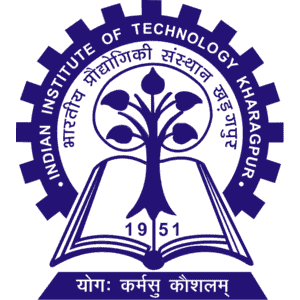
23. University of Abomey-Calavi
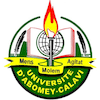
24. Stanford University

25. Asian Institute of Technology

26. Peking University

27. Free University Amsterdam

28. Polytechnic University of Valencia
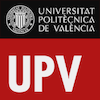
29. Zhejiang University

30. Iowa State University

31. University of North Carolina at Chapel Hill

32. Nanjing University

33. Monash University

34. Australian National University
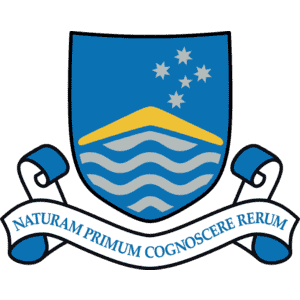
35. University of Queensland

36. Cranfield University
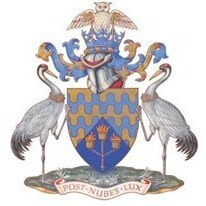
37. University of Bonn

38. University College London

39. Imperial College London

40. Dalian University of Technology
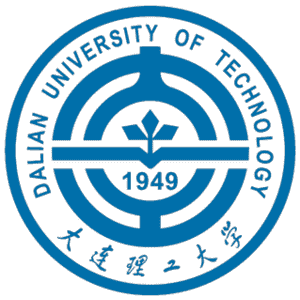
41. University of Lisbon

42. University of British Columbia
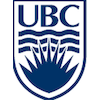
43. Northwest A&F University


44. Can Tho University

45. Indian Institute of Technology Roorkee
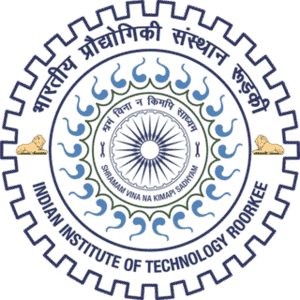
46. Virginia Polytechnic Institute and State University

47. Cornell University
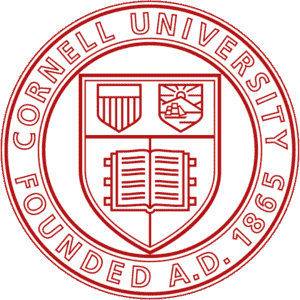
48. Columbia University
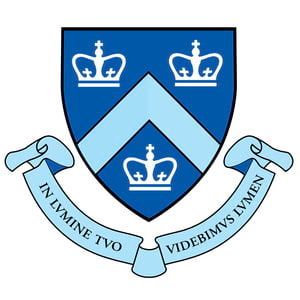
49. University of Oxford

50. University of Washington - Seattle

51. University of Cordoba
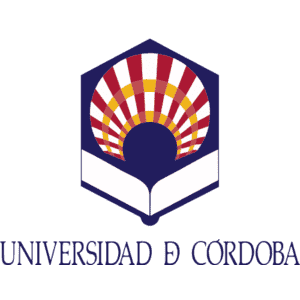
52. University of Texas at Austin

53. Utah State University

54. University of Nebraska - Lincoln
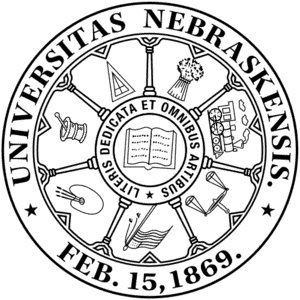
55. Arizona State University - Tempe
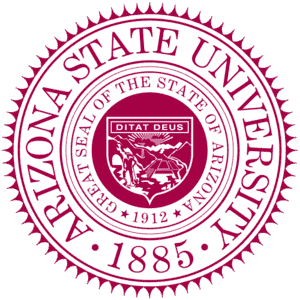
56. Ghent University

57. Tongji University

58. Ohio State University

59. Aristotle University of Thessaloniki

60. Pennsylvania State University

61. University of Alberta
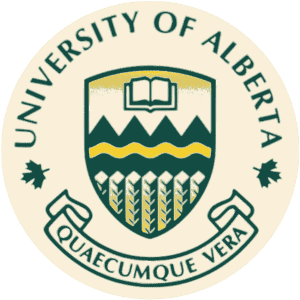
62. National University of Singapore

63. North Carolina State University at Raleigh

64. Griffith University

65. Technical University of Madrid
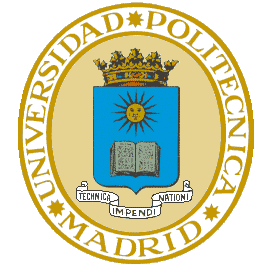
66. Michigan State University

67. Tianjin University
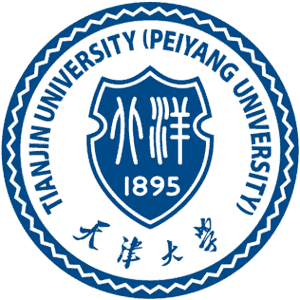
68. Suez Canal University
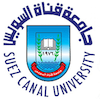
69. University of Sao Paulo

70. University of Birmingham

71. Kyoto University
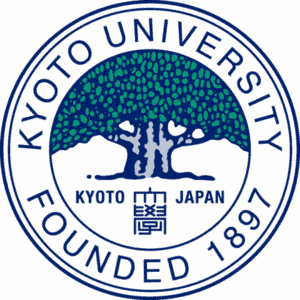
72. University of Maryland - College Park

73. University of East Anglia

74. National Taiwan University
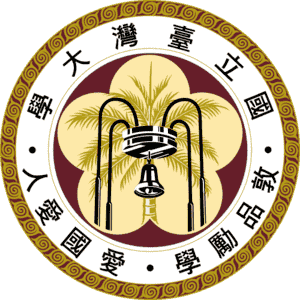
75. University of Liege
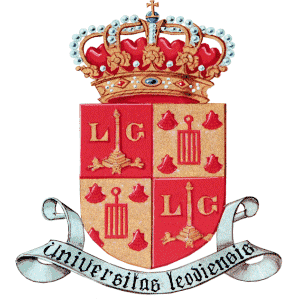
76. University of Minnesota - Twin Cities
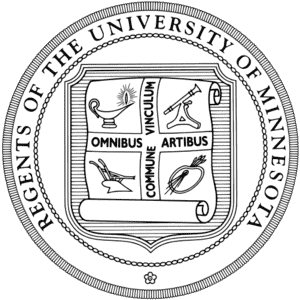
77. Addis Ababa University
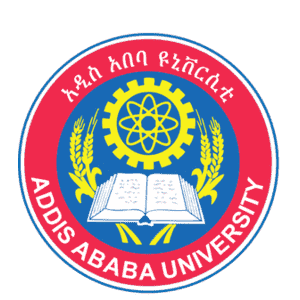
78. University of California - Irvine

79. Polytechnic University of Bari

80. Louisiana State University and Agricultural & Mechanical College

81. University of Leeds

82. Jilin University
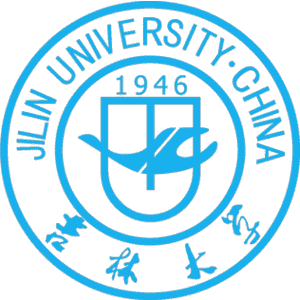
83. Yale University

84. Oregon State University

85. Federal University of Santa Catarina
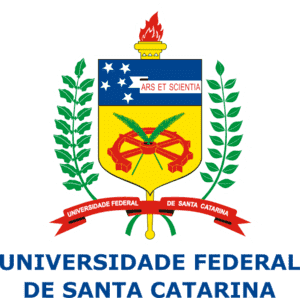
86. Zhengzhou University

87. University of KwaZulu-Natal

88. Lund University

89. University of Guelph

90. University of Exeter
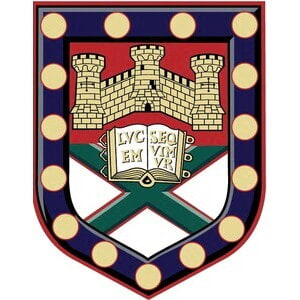
91. Beijing Forestry University

92. National Technical University of Athens

93. University of Waterloo
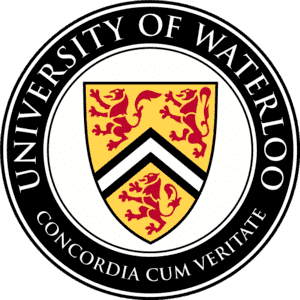
94. Purdue University

95. Massachusetts Institute of Technology

96. University of Kassel

97. Stockholm University

98. North China Electric Power University

99. Newcastle University

100. Indian Institute of Technology Bombay
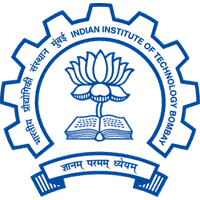
Environmental Science subfields in the World
Graduate School
- Make a Gift
Home » Watershed Science (Ph.D.)
Watershed Science (Ph.D.)
Watershed science is the interdisciplinary study of the physical, chemical, and biological factors that affect the quantity, quality, and flux of water. Such hydrologic changes have important implications for other natural resources that depend on water. The Watershed Science MS and Ph.D. programs are internationally renowned, and the completion of a graduate degree is excellent preparation for a career in governmental agencies, private industry, teaching, or research.
Doctor of Philosophy (PHD) in Watershed Science
Areas of study.
- Biogeochemistry
- Erosion and sedimentation
- Geographic information systems and spatial analysis
- Hydrologic modeling
- Land use hydrology
- Physical hydrology
- Remote sensing
- Snow and alpine hydrology
- Water quality
- Water resource planning
- Watershed analysis and cumulative watershed effects
- Watershed hydrology
- Watershed management
- Watershed modeling
- Contact your department representative or request more program information .
- Check out department requirements and resources from your department’s website.
- When you’re ready to take the leap, start your application .
Requirements
Coursework, credit requirements, and more information is available in the Colorado State University general catalog . Please contact your department representative with program-related questions.
Student Employment
Graduate students interested in employment positions (GTA, GRA, GSA appointments and hourly positions) should contact their advisor and their departmental graduate coordinator for the process to apply.
Financial Aid
- Financial aid resources available through the Office of Financial Aid website.
- Your department may have financial aid options available and please check our financial resource section for additional opportunities.

Environmental and Resource Management (Water Management), MS
- Program description
- At a glance
- Accelerated program options
- Degree requirements
- Admission requirements
- Tuition information
- Application deadlines
- Program learning outcomes
- Career opportunities
- Professional licensure
- Contact information
Water Augmentation, Water Law, Water Management, Water Quality, Water Resources, Water Reuse, Water Supply, approved for STEM-OPT extension
The MS program in environmental and resource management provides students who have a background in the sciences, engineering, management, natural resources management, environmental health and safety, or other affiliated areas with the regulatory and technical background they need to mitigate the environmental impact of industrial sources of pollution, ensure compliance with environmental regulations, and manage and preserve engineered and natural ecosystems.
The concentration in water management focuses on issues of water quality, supply, treatment, reclamation, conservation and augmentation strategies. This program is especially appropriate for people who work in municipal, state, federal and tribal water and environmental agencies; water providers to urban and agricultural users; people who work in manufacturing and mining industries; as well as those interested in sustainable development in this country and around the world.
This program may be eligible for an Optional Practical Training extension for up to 24 months. This OPT work authorization period may help international students gain skills and experience in the U.S. Those interested in an OPT extension should review ASU degrees that qualify for the STEM-OPT extension at ASU's International Students and Scholars Center website.
The OPT extension only applies to students on an F-1 visa and does not apply to students completing a degree through ASU Online.
- College/school: Ira A. Fulton Schools of Engineering
- Location: Polytechnic
- STEM-OPT extension eligible: Yes
Acceptance to the graduate program requires a separate application. Students typically receive approval to pursue the accelerated master’s during the junior year of their bachelor's degree program. Interested students can learn about eligibility requirements and how to apply .
30 credit hours and a portfolio, or 30 credit hours and a thesis, or 30 credit hours and a written comprehensive exam, or 30 credit hours including the required applied project course (ERM 593)
Required Core (6 credit hours) ERM 502 Regulatory Framework for Toxic and Hazardous Substances (3) or ERM 527 Environmental/Resources Regulations Concepts (3) ERM 503 Principles of Toxicology (3) or ERM 506 Chemistry of Hazardous Materials (3)
Concentration (9 credit hours) ERM 523 Soils and Groundwater Contamination (3) ERM 533 Water and Wastewater Treatment Technologies (3) ERM 535 Water Law and Policy (3)
Electives or Research (9--15 credit hours)
Culminating Experience (0--6 credit hours) ERM 593 Applied Project (3) ERM 599 Thesis (6) portfolio (0) written comprehensive exam (0)
Additional Curriculum Information Students choose one of the culminating experiences listed above. Thesis students take nine credit hours of electives or research; applied project students take 12 credit hours of electives or research; and portfolio and written comprehensive exam students take 15 credit hours of electives or research.
Students should see the academic unit for the approved course list for electives or research. Other coursework may be used with the approval of the academic unit.
The thesis and applied project options have an oral defense.
Applicants must fulfill the requirements of both the Graduate College and the Ira A. Fulton Schools of Engineering.
Applicants are eligible to apply to the program if they have earned a U.S. bachelor's or master's degree from a regionally accredited institution or the equivalent of a U.S. bachelor's degree from an international institution that is officially recognized by that country in engineering, physical sciences, mathematics or a similar field.
Applicants must have a minimum cumulative GPA of 3.00 (scale is 4.00 = "A") in their first bachelor's degree or in the last 60 hours of their first bachelor's degree program; a minimum cumulative GPA of 3.00 (scale is 4.00 = "A") in nine semester hours of graduate coursework from a U.S. institution; or a cumulative minimum GPA of 3.00 (scale is 4.00 = "A") in an applicable conferred master's degree program from a regionally accredited college or university.
All applicants must submit:
- graduate admission application and application fee
- official transcripts
- personal statement
- professional resume
- two letters of recommendation
- proof of English proficiency
Additional Application Information An applicant whose native language is not English must provide proof of English proficiency regardless of their current residency. Applicants should see the Graduate Admission Services website for more information.
Global Launch at ASU offers an online alternative to standardized testing for international students who are seeking admission to ASU but need proof of English proficiency.
If the applicant does not meet the minimum GPA requirements, the application may still be considered. In certain cases, demonstrated aptitude through professional experience or additional postbaccalaureate education is considered.
Unofficial transcripts may be submitted at time of application. If admitted, applicants must then submit official transcripts to ASU Graduate Admission Services.
| Session | Modality | Deadline | Type |
|---|---|---|---|
| Session A/C | In Person | 04/01 | Priority |
| Session | Modality | Deadline | Type |
|---|---|---|---|
| Session A/C | In Person | 09/15 | Priority |
Program learning outcomes identify what a student will learn or be able to do upon completion of their program. This program has the following program outcomes:
- Apply sustainable development practices and trends to water management systems
- Apply legal principles and concepts as described in environmental laws and regulations in order to manage engineered, industrial and natural water systems
- Apply management, scientific and technical solutions to address water management challenges and problems
Graduates are employed by industrial operations such as manufacturing and mining industries; federal, state and local environmental and water agencies; environmental firms; utilities; international agencies such as the United Nations and the World Bank; and NGOs.
ASU programs that may lead to professional licensure or certification are intended to prepare students for potential licensure or certification in Arizona. Completion of an ASU program may not meet educational requirements for licensure or certification in another state. For more information, students should visit the ASU professional licensure webpage.
Students should note that not all programs within the Fulton Schools of Engineering lead to professional licensure.
Environmental and Resource Management | SUTON 240 [email protected] 480-727-1874


Water Resources Management MS
Water is fundamental to all life. Meeting the increasing human demand for water while ensuring its future availability and quality is a significant societal challenge. The Water Resources Management (WRM) program prepares students to face the complexities of managing this critical natural resource.
Explore our curriculum
Learn how to apply
View requirements and forms
Putting Knowledge Into Practice
The core of the Water Resources Management curriculum is the practicum where graduate students take on a water resources management issue facing a local community. Instead of doing individual research projects, graduate students collaboratively carry out an applied two-year project. From start to finish, students gain real-world experience working with a government agency or nonprofit organization client. The end goal of the practicum is to inform water policy and deliver water management recommendations to decision makers.
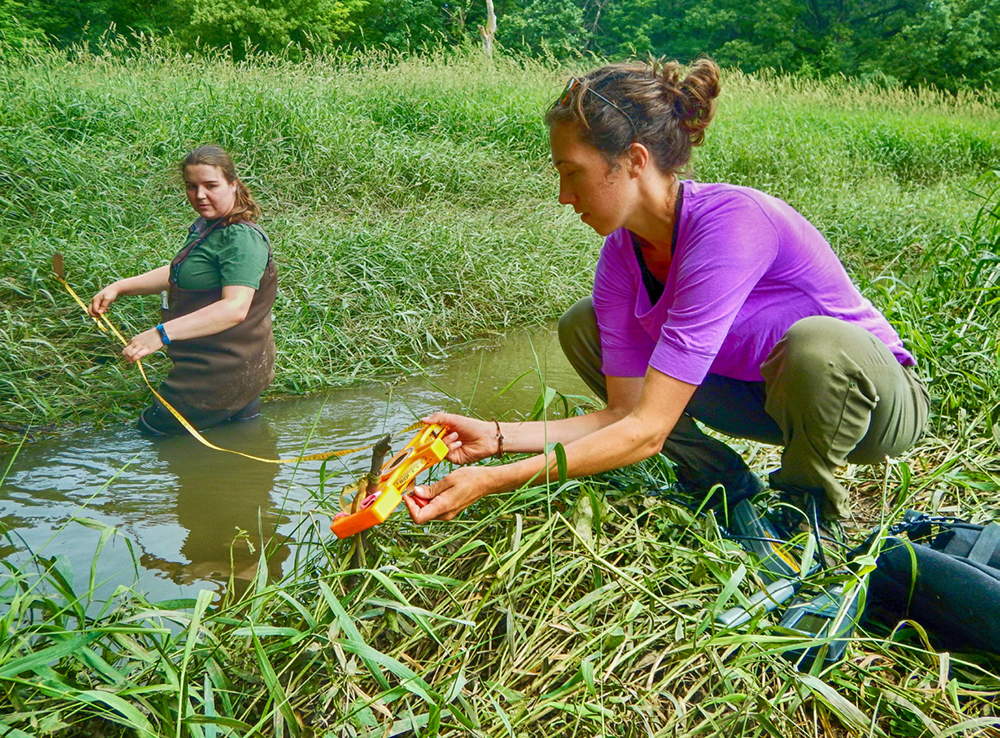
Where Can Your Degree Take You?
Since its founding in 1965, the Water Resources Management Program has prepared more than 500 graduates for professional work in water resources planning and management. Our graduates can be found all over the world working in fields ranging from federal agencies to urban and regional planning. Job titles of our alumni include:
Senior Water Resources Coordinator Oregon Water Resources Department (Salem, Oregon)
Vice President of Organizational Development The Wilderness Society (Washington, D.C.)
Vice President of Ecological Design North American Wetland Engineering (White Bear Lake, Minnesota)
View career data
Student Spotlight
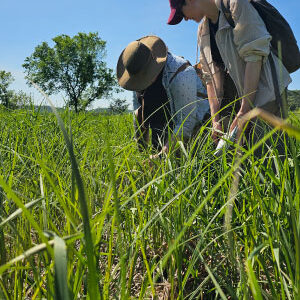
Farm-Bred and Future-Focused

Watershed Management and Words of Motivation
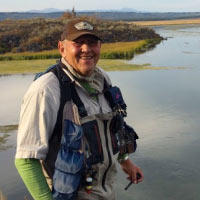
Introducing the Stephen Born Scholarship
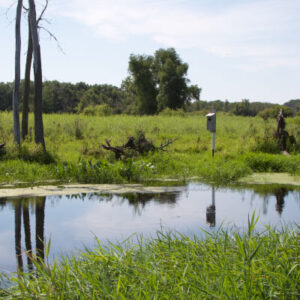
Rising Waters
Wondering if the Water Resources Management program is right for you? Our staff is happy to answer your questions.
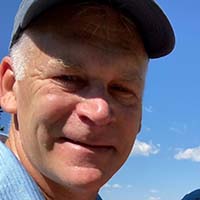
Ken Genskow Chair of Water Resources Management Program, Professor of Planning and Landscape Architecture [email protected]

Jim Miller Graduate Program Manager [email protected]
Support Water Resources Management
Gifts to the Water Resources Management Program play a crucial role in enhancing the reach and quality of our research and educational programs and support and advance WRM’s legacy of excellence in water science.
Make a gift today
Explore the Water Resources Management Program
- Overview More
- Curriculum More
- Requirements and Forms More
- Interdisciplinary Practicum More
- Careers More
- Contact Us More
- Support Water Resources Management More
General Graduate Program Information
- How to Apply More
- Funding More
- Career Services More
- Advising More
- Student Organizations and Activities More
- Joint, Double, and Dual Degrees More
- Campus Mental Health Resources More
- Frequently Asked Questions (FAQs) More

Governor appoints new leader to Commission on Water Resource Management

Gov. Josh Green has appointed Ciara Kahahane to be the next first deputy of the state Commission on Water Resource Management.
She will serve as second-in-command to Dawn Chang, who heads the state Department of Land and Natural Resources.
Kahahane previously worked in the state Department of the Attorney General’s Complex Litigation Division and is currently coordinating a review of last year’s fire in Lahaina for the AG’s office.

“Ciara is a dedicated public servant and I’m confident she will help lead the commission through the many complex issues surrounding management of water resources throughout Hawai‘i,” Green said in a statement. “As last year’s devastating Maui wildfires demonstrated, how we conserve, manage and allocate water is one of the most critical issues state government faces.”
Kahahane graduated from the University of Hawaiʻi at Mānoa’s William Richardson School of Law in 2019. In 2016 she earned a bachelor’s degree in Hawaiian studies.
She succeeds the previous first deputy Kaleo Manuel. Last year Manuel notably delayed West Maui Land Company’s request to divert stream water in West Maui to help fight the Lahaina fire.
Chang redeployed Manuel following his decision, before reinstating him as first deputy. Manuel then resigned from the position.
The diversion of West Maui stream water for land companies has long been opposed by many Native Hawaiians and other community members.

Graduate School
- Resources to Prepare for Graduate School
- Adonara Mucek, Ph.D. Geology '17
- Adriana Mendoza, Ph.D. Mathematics '14
- Andrew Olsen
- Becca Maher ('21, Ph.D.)
- Bryan Lynn, Ph.D. Integrative Biology
- Celeste Frazier Barthel, Ph.D. Education '21
- Diane Brandt
- Francesca Germano, Toxicology, M.S.
- Garrett Rogers
- Jafra Thomas
- Jen Hayes, Horticulture, PhD
- Jordan Jimmie
- Jordan Spradlin, Public Health, MPH
- Kalina Fahey, Psychology, Ph.D.
- Katie Stelling, Earth, Ocean and Atmospheric Sciences, Ph.D.
- Kelsey Contreras
- Layla Ghazi
- Marie Tosa, Ph.D. Wildlife Sciences
- Sara Letton
- Tiara Walz, Ph.D. Public Health
- Glossary of Terms
- Master's Students
- Doctoral Students
- Certificate Students
- Graduate School Orientation 2024
- Graduate Teaching Orientation 2024
- Do I Qualify to Attend Graduate Summer Step?
- Orientation for Winter, Spring and Summer Terms
- Co-sponsorships
- Your Graduate Committee
- Student Resources
- Grad Research Photo Competition
- Tips for Scheduling Committee Meetings
- Program of Study
- Formatting a Thesis or Dissertation
- Pretext Pages Templates
- Commencement
- Grad Inspire
- Grievance Procedures
- Request a Workshop
- Earning Concurrent Degrees or Pursuing a Dual Major
- Career Preparation
- Grad Writing Group Challenge
- Graduate Writing Center Online
- Changing or Adding a Degree, Major or Certificate
- GRAD 420 - Graduate School Preparation
- GRAD 512 - Current Issues in Higher Education
- GRAD 513 - Professional Development in College and University Teaching
- GRAD 516 - Graduate Teaching Seminar
- GRAD 520 - Responsible Conduct of Research
- GRAD 521 - Research Data Management
- GRAD 542 - The Inclusive College Classroom
- GRAD 543 - Dialogue Facilitation in Professional Contexts: Skills and Practice for Graduate Students
- GRAD 550 - Introduction to Online Course Development and Facilitation
- GRAD 560 - Theories of Teaching and Learning
- GRAD 561 - Course Design and Methods
- GRAD 599 - Creating Happiness
- GRAD 599 - Cultivating Productive and Positive Academic Relationships for Graduate Success
- WR 599 - Graduate Writing for English Language Learners
- WR 599 - Scientific and Technical Research Writing
- WR 599 - Writing Workshop for Thesis and Dissertation Writers
- OSU Grad Advantage
- Graduate Faculty Membership
- Graduate Council Representatives
- Policy updates
- Holistic Admissions
- Defining the Graduate Mentor
- The Importance of Mentors
- Apprenticeship and Mentoring
- Mentor and Mentee Pairing
- Maintaining and Evaluating Mentoring
- Suggestions for Mentoring Programs
- Handbooks, Manuals, and Guides
- Mentoring Bibliography
- Communication Items
- Detailed Considerations for a Joint Degree Program
- MOU Outline for Creating a Joint Program
- College and Program Recruitment Representatives
- Graduate Recruitment Tips
- Helpful Recruitment Links
- Shared Graduate Recruitment Schedule
- Leave of Absence and Family Medical Leave Eligibility
- Mentor Training for Faculty
- Student Funding
- Student Progress
- Student Progress Information for Programs
- Student Registration Information
- August 2023 Newsletter
- Sept 2023 Newsletter
- October 2023 Newsletter
- November 2023 Newsletter
- April 2024 Newsletter
- Dec 2023 Newsletter
- Feb 2024 Newsletter
- Jan 2024 Newsletter
- June 2024 Newsletter
- March 2024 Newsletter
- May 2024 Newsletter
- Strategic Plan
- Request Info
- Current Students
- Faculty Resources
You are here
Water resources engineering (ph.d., m.s., minor).
Students enrolled in this degree will be broadly trained to undertake life-long careers in water resources system design, and will have the option to focus on groundwater, surface water, or watershed engineering.
Students will be required to take a minimum of 12 (M.S.) or 15 (Ph.D.) credits of graduate level engineering courses, and at least 6 (M.S.) or 9 (Ph.D.) credits of water science courses to support the engineering analysis. Water science courses may be selected from non-engineering departments across the campus, and are required to provide the students with the scientific context to understand the non-quantitative aspects of water resource systems.
Students completing the WRE program will meet the coursework requirements to attain Professional Hydrologist certification through the American Institute of Hydrology (AIH). Prior to graduation, all students in WRE will be required to show competence in mathematics to the level of applied differential equations (MTH 256), have a year of calculus-based physics and chemistry at the undergraduate level.
Water Resources Engineering Website
Graduate School
Checklist for WRE
Corvallis
Admissions Requirements
Required tests.
The GRE is not required.
English Language Requirements ?
English language requirements for international applicants to this program are the same as the standard Graduate School requirements .
Additional Requirements
Application requirements, including required documents, letters, and forms, vary by program and may not be completely represented here. The processing of your application will not be completed until these requirements have been met. Please, before applying to this program, always contact the program office to confirm application requirements.
Application Process
Please review the graduate school application process and Apply Online .
Dates & Deadlines ?
Admissions deadline for all applicants, funding deadline for all applicants, concentrations , mais participation.
This program is not offered as a MAIS field of study.
AMP Participation ?
This program does not participate in the Accelerated Master's Platform (AMP)
Contact Info
Graduate School Heckart Lodge 2900 SW Jefferson Way Oregon State University Corvallis, OR 97331-1102
Phone: 541-737-4881 Fax: 541-737-3313
- Programs - Majors, minors and certificates
- Academic Progress
- Student Success
- Faculty Support
- Staff Directory
- Graduate Catalog
Geological conditions for allocation of solid municipal and industrial waste disposal sites in the Middle Urals
- Waste Utilization and Disposal
- Published: 08 January 2015
- Volume 41 , pages 896–903, ( 2014 )
Cite this article

- I. A. Antonova 1 ,
- O. N. Gryaznov 1 ,
- O. M. Guman 1 ,
- A. B. Makarov 1 &
- O. V. Kolosnitsina 1
83 Accesses
6 Citations
Explore all metrics
The conditions and the basic principles for the allocation of solid municipal and industrial waste (SMW and IW) disposal sites in the geological structures of the Middle Urals are considered. A typological classification of municipal solid and industrial waste disposal sites in the Middle Urals is proposed, which takes into account the factors that influence the nature of the induced processes and the risk to the environment and humans: the area and the amount of waste, waste composition, storage method, disposal conditions, water regime, the properties of underlying rocks, and the position in the region. The typological classification of SMW and IW and the zoning of geological environment in Sverdlovsk oblast is the basis for the choice of methods for predicting pollution at the sites of SMW and IW disposal as a component of monitoring the disposal sites.
This is a preview of subscription content, log in via an institution to check access.
Access this article
Subscribe and save.
- Get 10 units per month
- Download Article/Chapter or eBook
- 1 Unit = 1 Article or 1 Chapter
- Cancel anytime
Price includes VAT (Russian Federation)
Instant access to the full article PDF.
Rent this article via DeepDyve
Institutional subscriptions
Similar content being viewed by others

Environmental Challenges of Solid Waste Management in Moroccan Cities

Burden of the Coastal Area with Solid Waste in Kornati National Park (Croatia)
Territorial placement of solid municipal waste landfills.
Bagazeev, V.K., Geomechanical principles of burying solid municipal and industrial wastes, in Renovatsiya: otkhody-tekhnologii-dokhody. Tez. Vseros. nauchnoprakt. konf . (Renovation: Wastes-Technologies-Profits, Abstracts of Reports, All-Russia Sci.-Pract. Conf.), Ufa: “Pechatnyi dom” IP Verko, 2004, pp. 27–29.
Google Scholar
Vernadskii, V.I., Living matter of the first and second order in the biosphere, in Izbr. soch . (Selected Papers), Moscow: Nauka, 1960, vol. 5, pp. 63–71.
Gribanova, L.P., Gryaznov, O.N., Guman, O.M., et al., Inzhenerno-geoekologicheskie izyskaniya poligonov tverdykh bytovykh i promyshlennykh otkhodov. Uch. pos . (Geotechnical-Geoenvironmental Surveys for Solid Municipal and Industrial Wastes: Textbook), Yekaterinburg: UGGGA, 2000.
Gryaznov, O.N., Guman, O.M., and Dolinina, I.A., Management of the burial of solid municipal and industrial wastes in geological structures of the Middle Urals, Geoekologiya , 2006, no. 5, pp. 446–458.
Guman, O.M., Environmental-geological conditions at disposal sites of solid municipal and industrial wastes in geological structures of the Middle Urals, Extended Abstract of Doctoral (Geol.-Mineral.) Dissertation , Yekaterinburg: UGGGA, 2008.
Doklad ob ekologicheskoi situatsii v Sverdlovskoi oblasti v 2011 godu (Report on the Environmental Conditions in Sverdlovsk Province), Yekaterinburg: Sverdlovsk Province Government, 2012.
Kostarev, S.N., Mathematical model of management of a disposal site of solid municipal wastes, Extended Abstract of Cand. Sci. (Tech.) Dissertation , Tomsk: Tomsk State Univ., 2004.
Mironenko, V.A. and Rumynin, V.G., Problemy gidrogeoekologii , T. 3, Prikladnye issledovaniya (kn. 1) (Problems of Hydroecology, vol. 3, Applied Studies (Book 1)), Moscow: MGGU, 1998.
Nozhevnikova, A.N., Garbage dumps-“methane bombs” of the planet, Priroda (Moscow, Russ. Fed.), 1995, no. 6, pp. 25–34.
Furman, A.E., Materialisticheskaya dialektika (Osnovnye kategorii i zakony) (Materialistic Dialectics: Main Categories and Laws), Moscow: MGU, 1969.
Download references
Author information
Authors and affiliations.
Ural State Mining University, ul. Kuibysheva 30, Yekaterinburg, 620144, Russia
I. A. Antonova, O. N. Gryaznov, O. M. Guman, A. B. Makarov & O. V. Kolosnitsina
You can also search for this author in PubMed Google Scholar
Corresponding author
Correspondence to O. M. Guman .
Additional information
Original Russian Text © I.A. Antonova, O.N. Gryaznov, O.M. Guman, A.B. Makarov, O.V. Kolosnitsina, 2013, published in Geoekologiya, 2013, No. 3, pp. 243–251.
Rights and permissions
Reprints and permissions
About this article
Antonova, I.A., Gryaznov, O.N., Guman, O.M. et al. Geological conditions for allocation of solid municipal and industrial waste disposal sites in the Middle Urals. Water Resour 41 , 896–903 (2014). https://doi.org/10.1134/S0097807814070033
Download citation
Received : 10 September 2012
Published : 08 January 2015
Issue Date : December 2014
DOI : https://doi.org/10.1134/S0097807814070033
Share this article
Anyone you share the following link with will be able to read this content:
Sorry, a shareable link is not currently available for this article.
Provided by the Springer Nature SharedIt content-sharing initiative
- municipal solid and industrial waste
- disposal sites
- Find a journal
- Publish with us
- Track your research

IMAGES
VIDEO
COMMENTS
The Water Management and Hydrological Science (WMHS) graduate degree program is supervised by an interdisciplinary faculty from multiple department and colleges. The faculty have expertise in the bio-physical, geo-chemical, management, public health, social sciences and engineering fields. The program offers two masters' degrees (thesis and ...
The Water Resources Ph.D. program is built on an integrative curriculum and an interdisciplinary approach. It focuses on solving water-related challenges that transcend traditional academic boundaries. It is a technically and scientifically based program that blends the physical, chemical, and biological aspects of water resources with public health, policy, and management.
The chair, in consultation with the student, will select the remainder of the advisory committee. Only tenure or tenure-track members of the Graduate Committee Faculty, affiliated with the Water Management and Hydrological Science program, and located on Texas A&M University campuses may serve as chair of a student's advisory committee.
Get Involved. Explore the World's Water Issues. In this unique distinctive program, you will learn to collaborate effectively with peers in other fields and with key stakeholders and professionals to define, research, and achieve creative and sustainable solutions to contemporary water problems. Earn an interdisciplinary master's or doctoral ...
Research-based study programs are individually planned to meet the student's special interests and professional objectives. Time-to-completion for the Doctor of Philosophy degree in Hydrology is approximately 3.5-5 years (coursework, research, writing the dissertation, all exams) for well-prepared students.
Water management also includes treatment of drinking water, industrial water, sewage and wastewater, flood protection and more. Hydrology uses methods and knoledge from Chemistry, Biology and Physics, while Water Management is more connected to disciplines such as Sustainability and Resource Management. The field of study covers subjects such ...
PhD in Water Science and Management PhD in Water Science and Management represents an advanced and multidisciplinary approach to understanding, conserving, and managing one of our planet's most precious resources: water. This specialised doctoral program goes beyond traditional water-related disciplines and encompasses a wide spectrum of ...
University of Stirling Stirling Management School. This exciting and prestigious PhD Studentship, fully funded by the University of Stirling, will consider how 'enterprise ecosystems' utilise water resources to help drive innovation for sustainable and inclusive economic development across six key business sectors. Read more.
This PhD project will focus on evaluating and advancing the application of Membrane Aerated Biofilm Reactor (MABR) technology for treating produced water. Read more. Supervisor: Dr P Desmond. 31 December 2024 PhD Research Project Funded PhD Project (Students Worldwide) More Details. Last chance to apply.
The following undergraduate and graduate courses are included in the program: Undergraduate. C&EE150: Engineering Hydrology. C&EE164: Waste & Hazardous Waste Management. Graduate. C&EE250A: Surface Water Hydrology. C&EE250B: Groundwater Hydrology. C&EE250C: Mathematical Modeling of Contaminant Transport in Groundwater.
Water Resources. Ph.D. / Full-time / On Campus. 22,206 EUR / year. 6 years. University of Nevada, Las Vegas Las Vegas, Nevada, United States. Ranked top 5%. Top 5% of Universities worldwide according to the Studyportals Meta Ranking.
Managing today's water resources is a job that demands specially trained scientists and professionals who can work together across many different fields — including water science, social science, policy, law and engineering — to address emerging and monumentally complex water issues. In this unique program, you will learn to collaborate ...
Research and courses within the Environmental and Water Resources Systems (EWRS) group are concerned with the development and application of quantitative methods for the evaluation, planning and operation of water resource and environmental systems. Efforts address the integration and analysis of engineering and economic-policy issues posed by ...
Studying Hydrology & Water Management in United States is a great choice, as there are 15 universities that offer PhD degrees on our portal. Over 957,000 international students choose United States for their studies, which suggests you'll enjoy a vibrant and culturally diverse learning experience and make friends from all over the world.
Below is a list of best universities in the World ranked based on their research performance in Hydrology and Water resources management. A graph of 2.22M citations received by 149K academic papers made by 1,020 universities in the World was used to calculate publications' ratings, which then were adjusted for release dates and added to final scores.
Watershed science is the interdisciplinary study of the physical, chemical, and biological factors that affect the quantity, quality, and flux of water. Such hydrologic changes have important implications for other natural resources that depend on water. The Watershed Science MS and Ph.D. programs are internationally renowned, and the ...
The MS program in environmental and resource management provides students who have a background in the sciences, engineering, management, natural resources management, environmental health and safety, or other affiliated areas with the regulatory and technical background they need to mitigate the environmental impact of industrial sources of pollution, ensure compliance with environmental ...
The core of the Water Resources Management curriculum is the practicum where graduate students take on a water resources management issue facing a local community. Instead of doing individual research projects, graduate students collaboratively carry out an applied two-year project.
Water Resources Engineering is an essential area of expertise to manage society's increasingly limited water resources, including both quality and quantity. Our planet's water resources are under increasing pressure from challenges including climate change and supporting a growing human population's need for energy, water, and food. To help ensure a clean, safe and reliable supply of ...
Gov. Josh Green has appointed Ciara Kahahane to be the next first deputy of the state Commission on Water Resource Management. She will serve as second-in-command to Dawn Chang, who heads the state Department of Land and Natural Resources. Kahahane previously worked in the state Department of the ...
Ural Federal University, named after the first President of Russia, Boris Yeltsin, (Уральский федеральный университет имени первого Президента России Б.Н. Ельцина, Uralʹskiĭ federalʹnyĭ universitet imeni pervogo Prezidenta Rossii B.N. Yelʹtsina, often shortened to UrFU, УрФУ) is an educational institution in the Ural ...
Students enrolled in this degree will be broadly trained to undertake life-long careers in water resources system design, and will have the option to focus on groundwater, surface water, or watershed engineering. Students will be required to take a minimum of 12 (M.S.) or 15 (Ph.D.) credits of graduate level engineering courses, and at least 6 (M.S.) or 9 (Ph.D.) credits of water science ...
Yekaterinburg [a] is a city and the administrative centre of Sverdlovsk Oblast and the Ural Federal District, Russia.The city is located on the Iset River between the Volga-Ural region and Siberia, with a population of roughly 1.5 million residents, [14] up to 2.2 million residents in the urban agglomeration. Yekaterinburg is the fourth-largest city in Russia, the largest city in the Ural ...
The conditions and the basic principles for the allocation of solid municipal and industrial waste (SMW and IW) disposal sites in the geological structures of the Middle Urals are considered. A typological classification of municipal solid and industrial waste disposal sites in the Middle Urals is proposed, which takes into account the factors that influence the nature of the induced processes ...
Sverdlovvsk Oblast, like most of the Urals region, possesses abundant natural resources. It is one of Russia's leaders in mineral extraction. Sverdlovsk produces 70% of Russia's bauxite, 60% of asbestos, 23% of iron, 97% of vanadium, 6% of copper and 2% of nickel. Forests cover 65% of the oblast. It also produces 6% of Russia's timber and ...